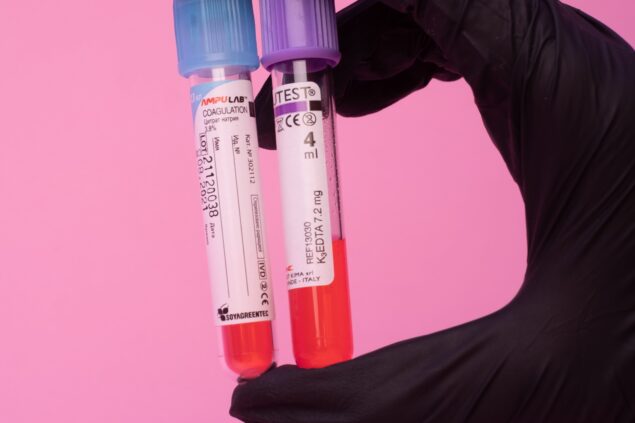Explainer Episode 46 – The Reagan-Udall Foundation’s December Reports on FDA’s Tobacco and Human Foods Programs: What the Reports Mean and What Comes Next

On December 19, 2022, the Reagan-Udall Foundation for the Food and Drug Administration, an independent 501(c)(3) organization created by Congress “to advance the mission of the FDA to modernize medical, veterinary, food, food ingredient, and cosmetic product development, accelerate innovation, and enhance product safety” released the second of two highly anticipated reports on its state of affairs. The first, released December 6, 2022, served as an operational evaluation of the FDA’s Human Foods program, which had struggled significantly during the course of the supply chain issues brought on during the COVID pandemic. The second December 19th, 2022 report covered “certain components of FDA’s Tobacco program,” evaluating operations there. Both were highly anticipated not just because of the serious and pertinent issues they addressed, but because questions circulated concerning how the Foundation is made up of many former FDA high officials, and how the report would rate the proceedings of the current FDA team.
In this podcast Jeff Stier, a senior fellow at the Consumer Choice Center, senior fellow at the Taxpayers Protection Alliance, and a policy advisor to the Heartland Institute breaks down some of what the reports say, and what the next steps for both the FDA and Congress may be.
Transcript
Although this transcript is largely accurate, in some cases it could be incomplete or inaccurate due to inaudible passages or transcription errors.
[Music and Narration]
Introduction: Welcome to the Regulatory Transparency Project’s Fourth Branch podcast series. All expressions of opinion are those of the speaker.
Chayila Kleist: Hello, and welcome to the Regulatory Transparency Project’s podcast. My name is Chayila Kleist, and I’m Assistant Director of the Regulatory Transparency Project here at The Federalist Society. Today, we’re delighted to host Jeff Stier for a discussion on the Reagan-Udall Foundation’s December 2022 reports on the FDA’s Tobacco and Human Foods Programs, what the reports mean, and what happens next.
As always, please note that all expressions of opinion are those of the experts on today’s program, as The Federalist Society takes no position on any particular legal or public policy issues.
Mr. Stier, thank you for being with us today. We appreciate you taking the time.
Jeff Stier: Thanks, Chayila. Good to be with you all.
Chayila Kleist: For our audience, a brief introduction. Mr. Stier is a Senior Fellow at the Consumer Choice Center. He’s also a Senior Fellow at the Taxpayers Protection Alliance and a policy advisor to the Heartland Institute. He is widely quoted in media and has written health policy op-eds for the Wall Street Journal, The Los Angeles Times, USA Today, the New York Post, Washington Examiner, Fox News, and National Review Online and has been interviewed by several other news sites. Additionally, Mr. Stier has testified before state and local legislatures throughout the US, at FDA scientific hearings, and the Offices of Management and Budget, and hearings for the United Nations and Israel’s Knesset.
Now, while there’s more to say, in the interest of time, I’ll cut my introduction there, but if you’d like to know more, you’re welcome to visitRegProject.org and read Mr. Stier’s impressive and full bio.
With that, however, we’ll turn to our discussion. Let’s start at the beginning. What is the Reagan-Udall Foundation?
Jeff Stier: So the Reagan-Udall Foundation was set up by Congress to support and assist the FDA in its work. So it’s kind of an independent group, but it also has ex-official FDA commissioners on its board. So in one sense, it’s independent and external, but it was also set up by Congress, is largely funded by the FDA, as well as other grants, but it’s there to help FDA do a better job in its work. So it’s not the FDA. It’s external, it’s independent, and outside of the FDA, but its mission is to support the FDA and make the FDA better in its work.
Chayila Kleist: Okay. So it’s connected to, but it’s external, and it regularly issues reports for the FDA, if I understand correctly. And we’re particularly talking about two reports that it issued recently, the first of which was issued on December 6, 2022, and touched on the operational evaluation of the FDA Human Foods Program. What was this report, what prompted it, and why is it important?
Jeff Stier: Well, this report — it was two reports in one. It was an umbrella of the FDA asking the Foundation to do a review of its operational practices in two specific areas. One was food, and one was tobacco. And while the FDA often goes to the Reagan-Udall Foundation to give it some outside expertise, it’s usually much narrower—very specific, narrower questions. Here, while the questions it asked Reagan-Udall Foundation to review were certainly narrowly tailored, they were big questions in terms of how is the FDA organized, and how does it do its work, specifically in those two categories and then even within those two categories, narrowly defined.
So, for instance, on tobacco policy or tobacco regulation, where the Center for Tobacco Products Division at the FDA, Commissioner Califf asked for a review of their operations and their communications, their regulatory review process, but they did not ask for a review of the FDA’s policy decisions. And that kind of narrowed the scope, although, as we will discuss during this conversation, personnel is policy, operational activity is policy, and you can’t really separate them out. So it’ll be interesting to see how that limit actually played out in the real world in terms of the Reagan-Udall review on tobacco policy.
Chayila Kleist: Okay. So there were two aspects to this report. The first came out on December 6, and the second came out on December 19, just a few days ago as we’re recording this. What were the two reports, how did they differ, and what is important to know its treatment as distinct units?
Jeff Stier: Well, on the food side, it was really no surprise that the FDA needs some help in terms of reorganizing. There are a number of different divisions within the FDA. If you just imagine how it’s organized. It’s not as if there’s a chain of command where, “Here’s the food division, and here’s the commissioner.” There are many different food divisions, and they all report to different places. So without a chain of command, you could imagine there are turf battles.
And the problems at FDA and Food really came to light—or became even more obvious and of national interest—over the last year, when there was this huge infant formula shortage and how the FDA engaged in terms of the Abbott plant that produced most of our infant formula in this country and how it had to shut it down because of possible contamination and then the shortage that that exacerbated. It really shined a spotlight on the FDA’s food regulatory area, and very glaring was the lack of good organizational consistency. And so that was really no surprise to anybody.
But one of the things that a lot of experts—myself included—expected — when you’ve got the FDA going to an outside — semi-outside, independent group saying, “Critique our work,” those of us with a healthy skepticism for government power predicted that the FDA was hoping that this outside, external group would come up with two important recommendations. Number one, the FDA needs more power and needs more authority, and number two, in order to enforce that power, it needs more taxpayer dollars.
So that’s what the skeptics—myself included—were wary of. And I wrote about it in the Washington Examiner when the report first was — when this expert report was first commissioned. Thought it was strange for it to be called an independent expert report, when, in fact, the people running the report were not only paid by the FDA to do the report but were made up of former FDA commissioners on the board, as well as — for instance, the tobacco report was headed up — the panel was headed up by the former chief of staff at the FDA, and things moved kind of slowly. So if you’re looking back, what happened over the past few years, you’re basically reviewing your own work. And how critical are they able to be? And that’s why I think they stressed that it was an outside independent report.
I think many people scoffed at that idea, but to inoculate the Foundation’s work from that criticism, it based its report on outside experts—outside of their own panel. They went to outside experts to get input. What are their observations, and how did they see the FDA working? And I think that was how they were able to say, “Okay, this was independent because we’re basing our recommendation on the observations of these outside experts.”
Chayila Kleist: So you touched on this a little bit. What was the process Reagan-Udall followed in order to produce these reports? So they’ve got outside experts; they’ve got a variety of inputs. Who was at the table, and what were the sort of ideas that were being shared?
Jeff Stier: So the report was headed up—the Foundation’s work—by a panel of experts on the tobacco side—there were five similar on the food side—and they were on a fact-finding mission. And they announced, “We’re going to go to stakeholders inside government.” So there were former or current FDA staffers who were able to testify anonymously, and there were stakeholders, so that included industries—industry stakeholders. It included public health organizations. It really went broadly, and while the panel was made up of some former FDA officials, it also included specialists in organization. How do we organize these agencies?
So it’s not a — it was subject-matter experts, but also broader than that, to help bring together — the comments or the recommendations and observations were driven by the comments from stakeholders, but they were informed with the various expertise of the panel members who have been there before at the FDA or are actually subject-matter experts in organization. So it was able to weave all that together into the final report, which came out a few weeks ago and again this week, while we’re recording, on the tobacco side.
Chayila Kleist: And you were able to be one of the external experts consulted on that tobacco report. Yes? How was that experience?
Jeff Stier: I was. It was interesting. Coming from an outside group, it had a feel — I’ve testified in many FDA meetings. It had that same feel where it was very controlled—we’re limiting the scope of your testimony to these areas—but it was a very open process in terms of giving the experts an opportunity to have their voices heard across a wide range of policy views. So it was really great to hear public health groups, policy groups, stakeholders in industry, even users of these products were able to testify. And I found that the panel was very open and interested, very engaged with the experts, and they asked probing questions.
So we had an opportunity—maybe, seven minutes—to testify, and they would group a few experts together. And then, at the end of that panel of experts, the floor would open up to the Reagan-Udall Foundation members to ask the experts questions and really hone down on what they were interested in.
I thought the process went very well, but it made me wonder, at the time, those were really scathing comments about the FDA’s work. And given my healthy skepticism, I’m wondering whether the final report would accurately and transparently reflect that really powerful, broad-based criticism that the Center for Tobacco Products received from the experts. There’s that skepticism that maybe it’ll be a whitewash. Maybe they’ll say, “Oh, they did all these things wrong. If only they had more money and more authority.”
And, of course, that was part of the recommendation. It did recommend, for instance, user fees for products like e-cigarettes. But if you think about how that works, how user fees work, a lot of the FDA is funded by user fees on the pharmaceutical side. And those user fees have to be reauthorized by Congress every period of time. And by having user fees that have to be reauthorized by Congress, it gives Congress the ability to exercise more oversight. So it’s not as if the — what happened here was that the Congress said, “FDA, you have authority to regulate tobacco products,” and then set out how it must be done. And then Congress walks away, and the FDA does its job. When you have user fees that have to be reauthorized by Congress, it’s really an important and useful separation of powers, oversight opportunity for Congress to be engaged in the oversight of the agency on an ongoing basis.
So it’s not as if Congress creates the agency and then walks away. It improves, I think, intergovernmental engagement on these issues, and that’s — given the outcome of the report and the observations from the experts, that’s going to be really important as we go into 2023. I think a Republican House is going to be very eager to look at what these recommendations were. Some of those recommendations will have to be implemented at the administrative level. Some of them will require, I think, new rulemakings. Some of it could be done just by the commissioner. Some of it will have to be new rulemakings, and some of it will require congressional authorization. Some of it may require the administration—say, the White House—to set the agency on a better path.
So there’s a lot going on in terms of “how do those recommendations get implemented, if at all?” So it’s really interesting from a separation of powers, from an administrative law perspective.
Chayila Kleist: Okay. Well, before we move on to what the reports mean and the future in implementing them, briefly, on the conclusions that the reports drew, you mentioned you were surprised in many ways. You thought, okay, maybe it will be more people, more money, and it doesn’t seem that that was the only answer that those provided. What conclusions were drawn, and did they address some of the concerns raised during the open discussions with outside experts?
Jeff Stier: Yes. To the Reagan-Udall Foundation’s credit, the report itself was, in fact, very transparent. It was based on, I would say, a very balanced group of perspectives from public health organizations, who testified that enforcement of the law of the regulations has been poor. So that means e-cigarettes that should not be in the marketplace are in the marketplace, and the FDA hasn’t done enough to enforce it. And the Reagan-Udall Foundation incorporated those public health concerns into its report and suggested that the FDA—which is a regulatory agency, first and foremost, exercising under statutory authority—needs to work with other governmental agencies that have enforcement experience and — for instance, there is a division, ATF, and people often forget that the T stands for tobacco. There’s a lot of work on alcohol. There’s a lot of work on firearms. And maybe the ATF ought to be more involved.
Maybe the FDA needs to do a better job working with state and local governments to provide enforcement at the local level, which is where kids are buying illegal e-cigarettes. The FDA doesn’t have the police force to do it all on its own. So I think it’s important, from a policy perspective, that those public health groups be listened to, and industry shared the same view. Industry, who has spent a lot of money on the regulatory process for those companies that did get authorization, they ought to be protected by that authorization and have that market. And now they’re competing against an illegal market.
So I think there was a broad consensus from the diverse experts that there needs to be better enforcement, whether that’s ATF, whether that’s other government agencies at the federal level as well as state and local—the FDA needs to do a better job. And even those who want there to be a broad availability of lower-risk nicotine products, like e-cigarettes, available to adult smokers to help them quit smoking and improve their health, even those people want better enforcement of these rules.
Because right now, the FDA — and this was one of the reactions of the report—in fact, in the overview—that the Foundation concluded that the Center for Tobacco Products has been reactionary rather than proactive in its regulatory role, and it’s been on its back foot. And there hasn’t been a strategy, a broad policy strategy, going forward about how the FDA ought to use its authority.
So I think those types of recommendations really reflect the broad perspective of many of the experts. One of the things that I testified about was the law — Congress gave FDA authority to regulate and authorize lower-risk products to improve public health and balance the risk of younger people using these products and initiating nicotine use versus the benefits of these products to adult smokers in helping them quit. And the report was pretty clear that the FDA needs to do a better job of being transparent in the regulatory process so that the regulated companies know what to expect when they put a product in for authorization.
Right now, the way it’s been working is there’s this general standard appropriate for the protection of public health. So if a product that the FDA is reviewing is appropriate for the public health, it shall receive authorization to be marketed. And if the FDA concludes that a product is not appropriate for the protection of public health—that’s a pretty high standard that these products have to improve public health on the whole. Then if it’s not appropriate for the protection, that product shall not be authorized.
Well, the FDA, in its years-long regulatory process, developed rules for applications, and nowhere—even though industry requested it—did the FDA say, “In order to show that your product is appropriate for the public health, we need the following types of studies. We need the following types of data. Here’s what you need to meet that burden.” And the FDA ignored those requests and just kept it very general. And then what we’re seeing is, we’re seeing products that companies spent millions of dollars to put applications in for are being denied, receiving marketing denial orders, and they don’t even know why.
And as we saw with Juul, some of those products — some of those marketing denial orders were later withdrawn because the FDA said that it didn’t get the science right, and there were unique scientific issues with Juul that needed to be reevaluated and that with — it backtracked under the threat of litigation. So I think all of the messy situation that the FDA got itself into—and, in fact, the report said that many of the problems — for instance, everything they’re doing is mired in litigation—were largely self-inflicted because a lot of that litigation is about the fact that companies didn’t know what to submit, and now they’re saying that the FDA was arbitrary and capricious in its implementation of the regulations.
Well, if FDA had only put out clear product standards—here’s what you need to show—a lot of that litigation would have gone away by now. You could always say, “Well, the tobacco industry, the e-cigarettes are going to sue.” That may be true, but as we just saw with the Supreme Court denying a Reynolds Tobacco Company effort to overturn a new flavor ban in the State of California, those get dismissed very quickly when there aren’t many merits, whereas a lot of the e-cigarette litigation is still in court because it actually did have merit.
And in those cases, which are going to — they’re not going to be a review of FDA’s approach, but they’re going to be on the merits of each individual product and each individual lawsuit, are starting to come together. And I think in those cases, some of the strongest evidence that will be provided is this Reagan-Udall Foundation report—an external review requested by the FDA itself, coming from former FDA officials interviewing a broad spectrum of experts, comes to a conclusion that says, “The problems are self-inflicted because the FDA wasn’t clearly communicating what its expectations were from the regulated industry as the law required.
So this report will not only impact the FDA’s work—and the FDA has issued a statement that it’s going to take the next few weeks to consider this thirty-something-odd-page report—but it’s also going to impact cases that are currently being litigated on a specific product-by-product basis.
Chayila Kleist: Okay. So on that and then as we — the reports out, they’re readable, the FDA’s reading them, we’re reading them. Transitioning to what they mean and the future, we’ll start with litigation, and we’ll backtrack to what the FDA can do and what Congress can do because you mentioned both of those—there are options there. How does this report, or these reports, affect ongoing litigation and then vice versa? How might ongoing litigation affect the FDA’s willingness and capacity to implement some of the suggestions therein?
Jeff Stier: Excellent question, Chayila. The answer’s yes, right? It impacts both. So in terms of the ongoing litigation, I can’t imagine — if I were litigating one of those cases, and you said, “Hey, Jeff. What would be the best evidence you could have?” Two types of evidence. One would be internal documents—and this is just theoretical—from the FDA’s Office of Science because the FDA’s here to implement science. While the Congress wrote the law, FDA’s job is to implement that law using the science. Imagine if the FDA’s Office of Science said, “We ought to authorize these products because they are appropriate for the protection of public health—or this product.” Right? It’s always on an individual product basis. Imagine if there were a document from the Office of Science saying, “This product is appropriate for the protection of public health as required by the law,” and then the FDA issued a marketing denial order for that product. That would be really powerful evidence.
The other type of evidence that would be powerful is an independent, external report written by former FDA leadership using outside expertise. Well, on the first front, some really good independent reporting by Alex Norcia, just in the last week—through using a Freedom of Information Act requests—found documents on a specific case of an e-cigarette brand called Logic, and it’s a fascinating case. Their e-cigarette, that was tobacco flavored received, authorization. The FDA found that that e-cigarette was appropriate for the protection of public health because the benefits to society outweighed the risks of — it would help more people quit than it would cause harm by youth initiation. Not many youth were using it.
Then there was an application for a similar product, also by Logic, that had one important change. That product could be modified by adding the flavor of menthol to that e-cigarette. So it wasn’t a different e-cigarette. It was the same exact hardware and the same exact e-liquid, with the addition of menthol to it. So that was the only change. That, of course, required a whole new application, and while the FDA issued authorization for the tobacco flavor to help adults smokers quit, it wound up issuing a marketing denial order for the menthol flavor, saying that “while youth prefer menthol flavors, a lot of youth vape menthol, therefore we’re denying it.”
And in the original reporting that came out through FOIA just last week, the Office of Science at the FDA recommended that that product was appropriate for the protection of public health. Specifically—just to give you context—the FDA has announced its intent to ban combustible menthol cigarettes, and it’s going down that regulatory path. And if the FDA is going to take away menthol cigarettes, you would think that the FDA would want to give those smokers a place to go with a lower-risk menthol e-cigarette for sale to adults only.
And that’s basically what the Office of Science concluded is, “especially as we transition adult menthol smokers away from that product, while it’s best for them not to use any nicotine product whatsoever, we recognize that some people will continue” — and that the FDA has said this. “We recognize that some people will either need to or want to continue using nicotine, but we want to help direct them and nudge them in the right direction.” Then why not authorize a product that was already authorized with only one change—that is, menthol? And the Office of Science recommended it. The FDA—the commissioner’s office— eventually said, “No, we’re not authorizing it because of concern about youth usage.”
So that FOIA document and this report have got to put the FDA Center for Tobacco Products in a very uncomfortable situation because it’s got a pile of litigation for past actions. Its current work is being reviewed on an ongoing basis by a federal court in Maryland after—in 2019, I think it was—some public health groups sued the FDA for not taking e-cigarettes off the market quickly enough.
So the FDA’s being watched by a federal court in Maryland, fending off litigation for products that it did authorize, and it’s still got lots of innovative products before it that it’s got to consider, and it’s got to keep the game fair. It can’t change the rules midway. Now, look, I’m not predicting that the FDA will throw away all of the marketing denial orders that took place to date because the process was so flawed, as this report explained.
But it puts the FDA in a really uncomfortable position going forward because it’s got to defend what it did in the past, look at what it’s doing now, and also move towards the future, where the FDA — the plans to not only ban menthol combustible cigarettes, but in the first quarter of 2023 is expected to announce a mandatory reduction in nicotine in combustible cigarettes, making the cigarette as we know it today no longer addictive. And you will only be able to sell very low nicotine combustible cigarettes, as part of an overall view that is meant to move smokers away from the deadliest product and on to lower products.
Well, of course, we know that the danger of smoking is from the products of combustion. These new, very low nicotine e-cigarettes that the FDA wants to move us towards still have all those dangerous products of combustion, it just has almost no nicotine—so little nicotine that it would no longer be satisfying or to sustain an addiction, with the idea of moving smokers to a lower risk product. But how is the FDA possibly going to get there when, over the past year, it has banned the very products that adult smokers use to quit smoking—e-cigarettes with some flavors—and at the same time, the only products that have received an authorization are the very products that adult smokers in the marketplace have found were not helpful, to help them quit smoking.
So the policy, the procedures, the regulatory process, all come to a head and leave us in this situation that — it was no surprise that the FDA tobacco regulation program is an absolute mess, on top of the fact that the Director of the Center for Tobacco Products, Mitch Zeller, retired last year in the midst of all this. And in the fall, we learned that the Director of the Office of Science at the Center for Tobacco Product left his position. But not only did he leave the FDA, he joined Philip Morris International—he joined the opposition, if you will. And it makes you wonder, why would the top scientist at the FDA leave the FDA and go to tobacco industry?
And I would suggest that the reason for that is because if you want to institute tobacco harm reduction, to help reduce the 400,000 Americans who die every year because of smoking and move them to lower-risk products, it appears, given the director’s departure and the top scientist’s departure, that the FDA may not, right now, be the place to advance public health because it is so politically motivated and so ideological that, in fact, the Reagan-Udall report recommended that the Center for Tobacco Products really double down on focusing on the science and recognize that the FDA is — yes, it’s a public health organization, but it has authority to implement the statute given to it by Congress.
And while the report was very polite, it was really an effort to offer constructive criticism. If you strip away all of that niceness and politeness, this was a damning report about every single aspect of the Center for Tobacco Products’ work over which the Reagan-Udall Foundation was given the scope of work to do. And, in fact, while the report — the FDA commissioned the report and said, “Look at all of these areas, but don’t review our policy work.” In fact, if you look at the recommendations from the report, they actually have many policy recommendations because you can’t separate out operations, communications, from policy. Because when you don’t communicate to adult smokers that these lower-risk e-cigarettes are, in fact, less harmful than combustible cigarettes, you’re not doing your job as a public health agency.
There is data out there that shows that most American smokers think e-cigarettes are as dangerous or possibly more dangerous than combustible cigarettes. And that’s the view out there in this country. It is dead wrong. There’s no debate. These are lower-risk products. Yet the FDA has continually refused to communicate that science-based information to the very citizens whose public health it is supposed to protect, which is adult smokers. And the outside experts pointed to that, and it was in the report that the FDA needs to do a better job of communicating not only to stakeholders but to the public.
Chayila Kleist: Okay. So a couple more questions, and we’ll wrap it up. You brought it back, it seems — well, it seems that the FDA is in a tough spot, given their past litigation, their present situation, and the fact that they keep moving forward as we all move through time, and these reports provide some pass forward, whether or not they’re able to take it, there are some options as to what the FDA could do. How are those implemented? Can the FDA do it within their current statutory authority—you mentioned more rulemaking—and then, what role does Congress play in making this possible?
Jeff Stier: That’s very true. There are a wide range of recommendations, although while the recommendations are pretty specific, they don’t actually outline exactly “how do we get there?” So while they’re specific, they’re also general recommendations and gives the FDA some range in how to implement them. Now, first of all, it needs to be said that as critical as this report is—and while we talked earlier, the Reagan-Udall Foundation does reports for the FDA all the time—this report was unique. It was about “how are these divisions doing, generally, in these areas?”
The recommendation, for instance, that there be user fees is something that absolutely the agency can’t do. It would need Congressional authorization. Now, I think it’s a lot easier to go to Congress and ask for a change when you’ve got an external report saying it. In fact, I think that’s part of the reason — why did the commissioner ask for this review? I think they wanted to be able to go to Congress to recommend changes, and rather than saying, “Hey, we want more money,” say, “The outside experts say we should have more money.” But I think a recommendation like that might be good because it might—as we discussed earlier—integrate the Congress more into the ongoing process as it does on the drug side with PDUFA, where these user fees have to be reauthorized by Congress.
Some of the recommendations, such as working with other — to have better enforcement and to achieve better enforcement by working with other agencies, a lot of that can be achieved through the commissioner’s office. And certainly, the recommendation that there be better communication does not take an act of Congress. There’s already a requirement that the FDA use the best science and you would think, therefore, communicate it.
But that’s nothing new. So the question is, will FDA change? And this report has no teeth in terms of, FDA doesn’t have to do it. The only way the FDA will begin implementing—and, perhaps, selecting some of the recommendations to begin implementing—is if there is enough pressure on it by the stakeholders, by the courts, in various ways through the past litigation and the current litigation, and through the administration. Is the White House going to say, “We asked for this report; we better implement what it said?” And some of it will require Congressional authorization; some of it won’t.
My question is, will the current leadership at the FDA — and I’m not talking about just Doctor Robert Califf, the Commissioner, who’s got a big overview, but will the new Director of the Center for Tobacco Products be able to implement these changes? Dr. Brian King was the Commissioner — or the Director of the Office when the FDA decided not to authorize the Logic e-cigarette, and now we know that he did that against the advice of the Office of Science. And how will the White House feel about the fact that the new Director of the Center for Tobacco Products, who comes out of the CDC, overruled the science office in issuing a major marketing denial order? And is that the leadership that the Center for Tobacco Products should have right now in order to begin implementing these very important, highly validated changes that are being recommended? I would say the administration’s going to have to think. Dr. Califf is going to have to think about whether there needs to be new leadership at the Center to be able to enforce these recommendations.
Chayila Kleist: Got it. Well, thank you. Barring any other concluding comments, we’ll wrap it there. Mr. Stier, we really appreciate you making the time to be with us today and share your expertise and insight. For our listeners, thank you for tuning in. If you’d like to find out more content like this, please feel free to check us out at www.regproject.org. Again, thank you so much, and you have a great day.
[Music]
Conclusion: On behalf of The Federalist Society’s Regulatory Transparency Project, thanks for tuning in to the Fourth Branch podcast. To catch every new episode when it’s released, you can subscribe on Apple Podcasts, Google Play, and Spreaker. For the latest from RTP, please visit our website at www.regproject.org.
[Music]
This has been a FedSoc audio production.

Topic
The Federalist Society and Regulatory Transparency Project take no position on particular legal or public policy matters. All expressions of opinion are those of the speaker(s). To join the debate, please email us at [email protected].








